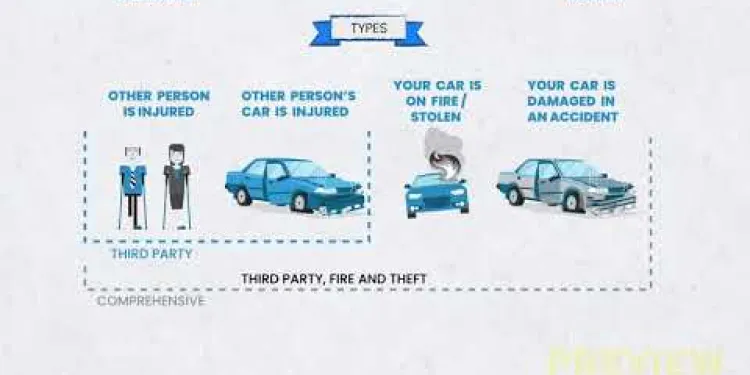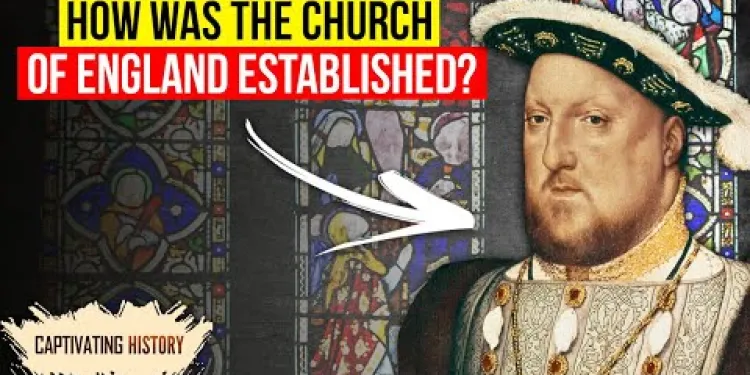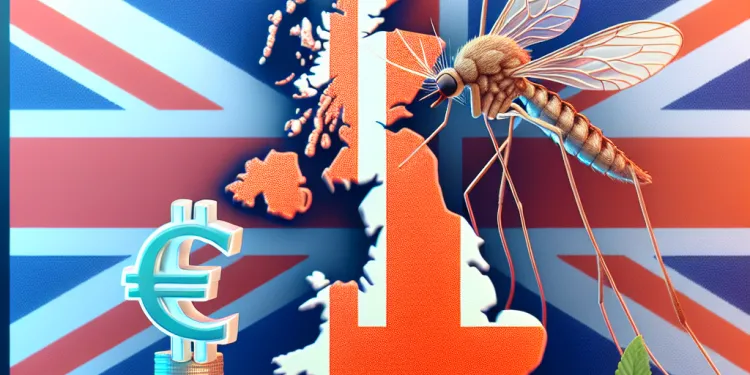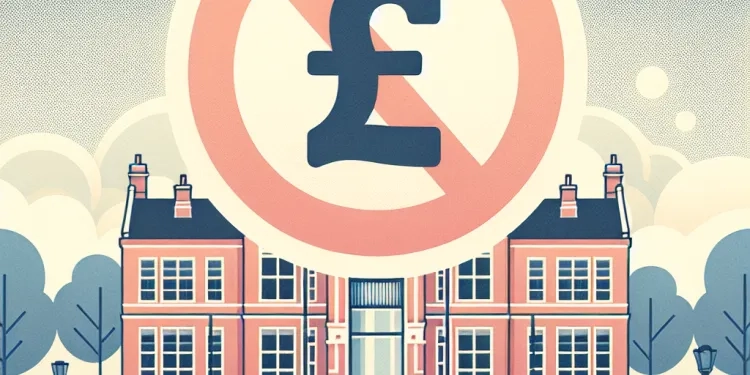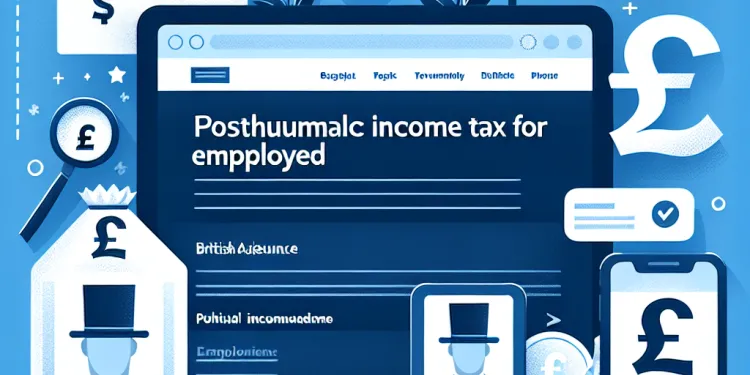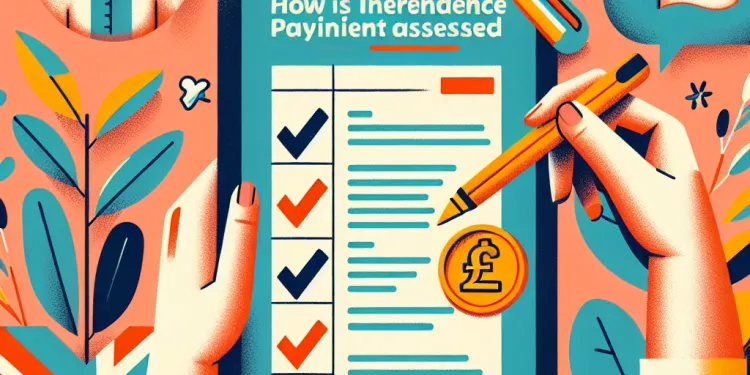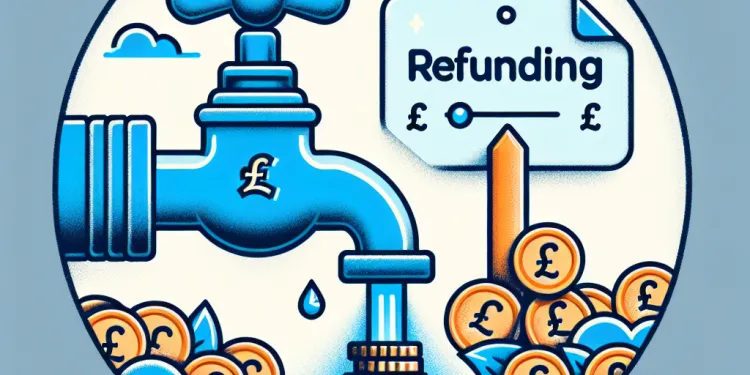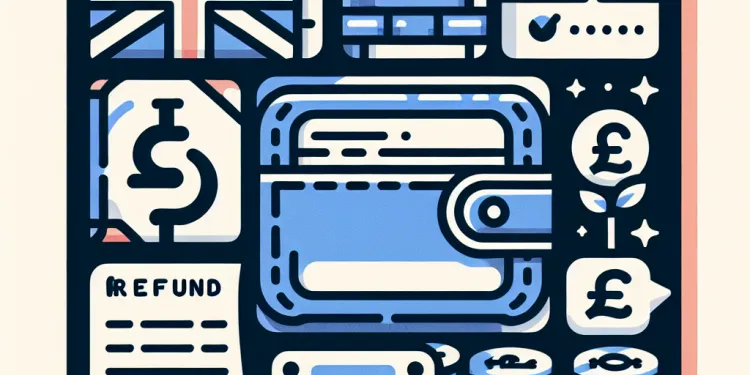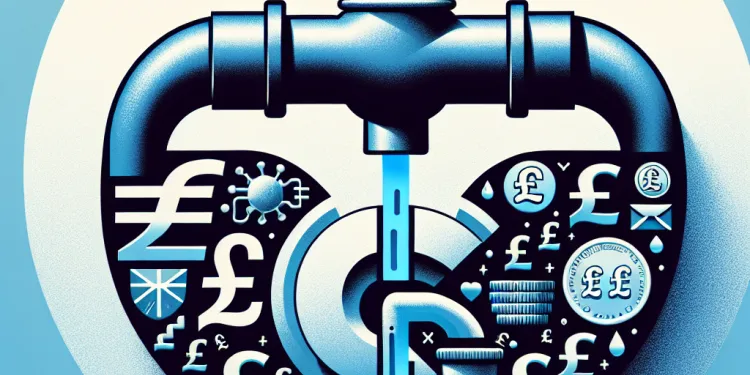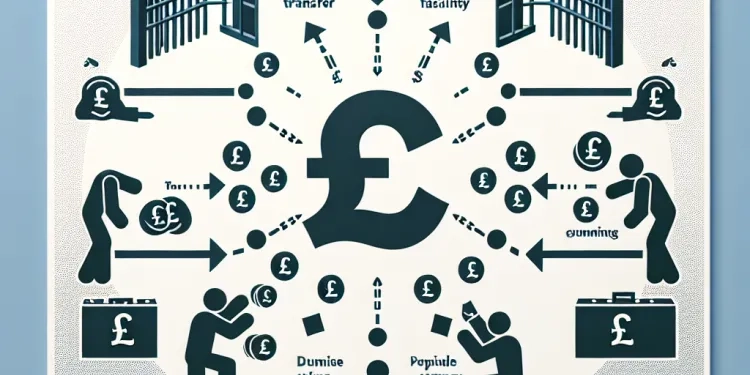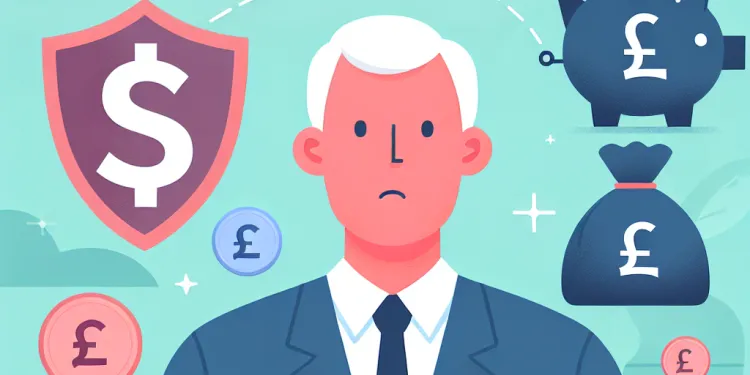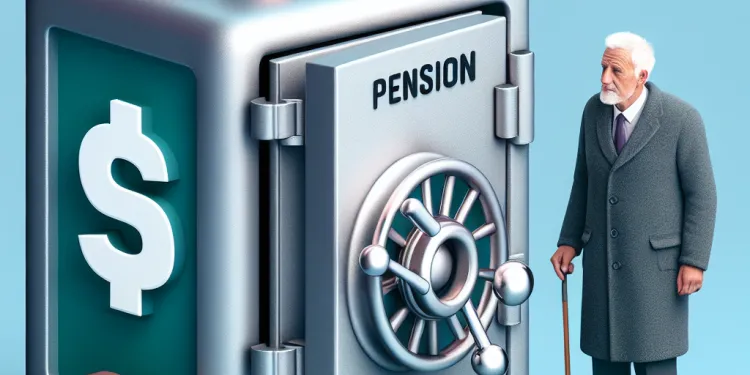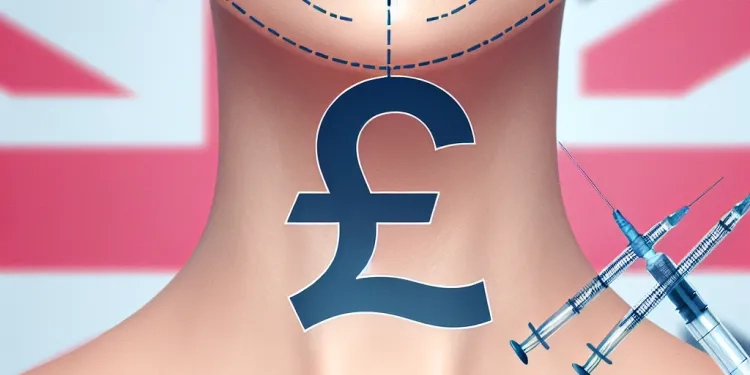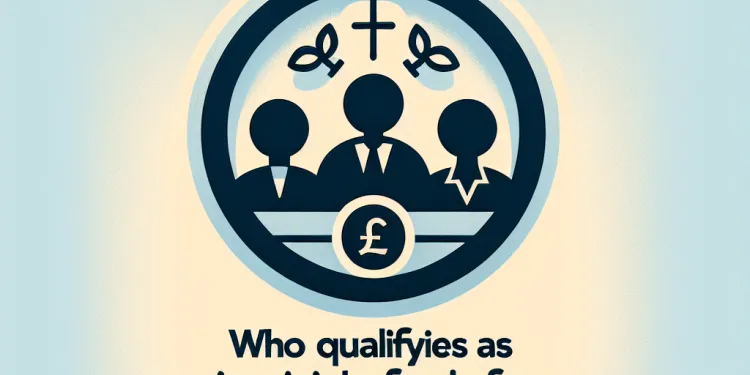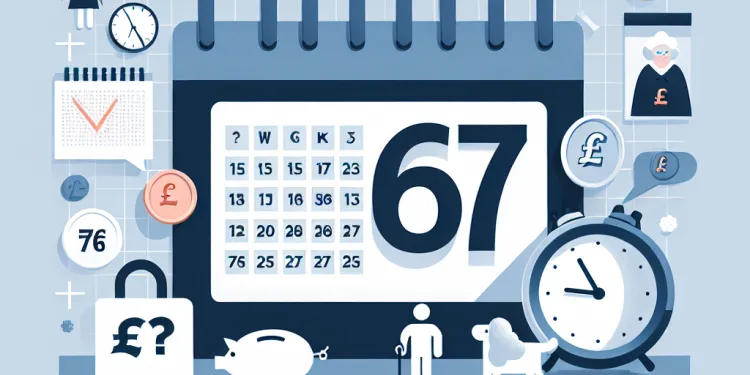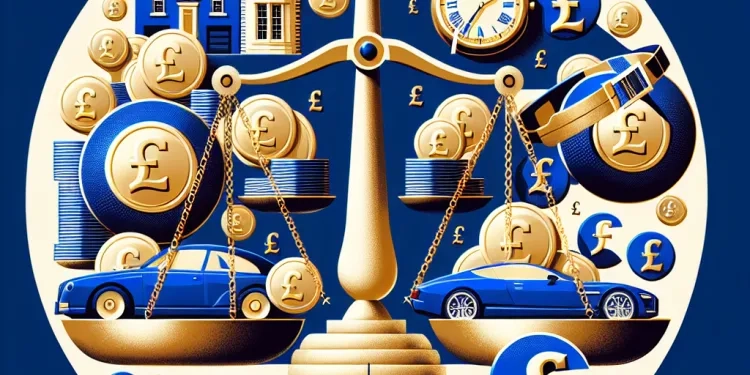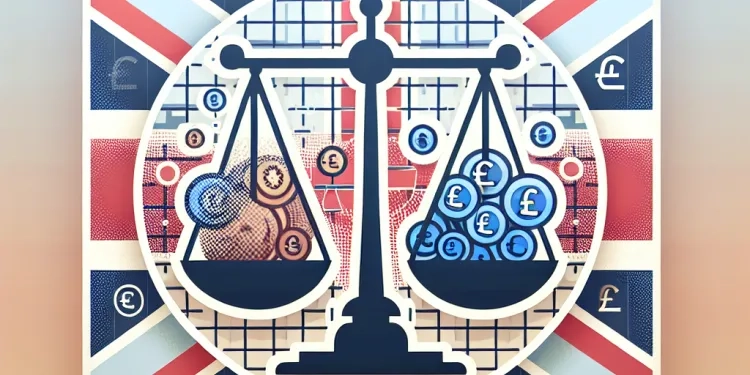
Find A Professional
More Items From Ergsy search
-

Would a wealth tax replace other taxes in the UK?
Relevance: 100%
-

What is the wealth tax in the UK?
Relevance: 92%
-

Could a wealth tax encourage tax avoidance?
Relevance: 92%
-

What is the Wealth Tax in the UK?
Relevance: 87%
-
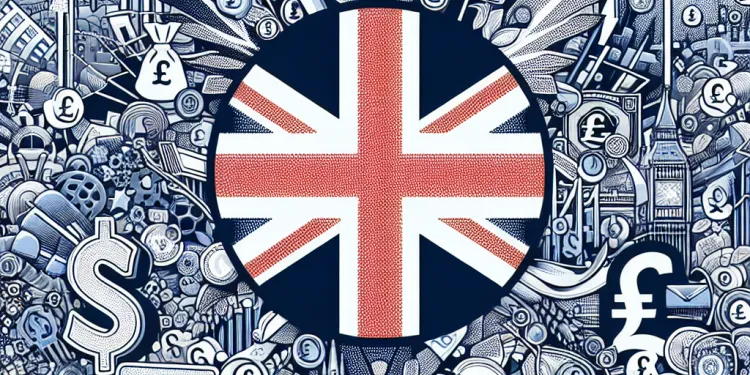
How do other countries implement a wealth tax?
Relevance: 80%
-

How might a wealth tax impact inequality in the UK?
Relevance: 79%
-

Has the UK ever had a wealth tax?
Relevance: 79%
-

Could a wealth tax affect economic growth in the UK?
Relevance: 79%
-

Has any political party in the UK supported a wealth tax?
Relevance: 79%
-

Why doesn't the UK have a wealth tax?
Relevance: 78%
-

Would a wealth tax apply to foreign assets?
Relevance: 72%
-

What arguments are made for a wealth tax in the UK?
Relevance: 70%
-
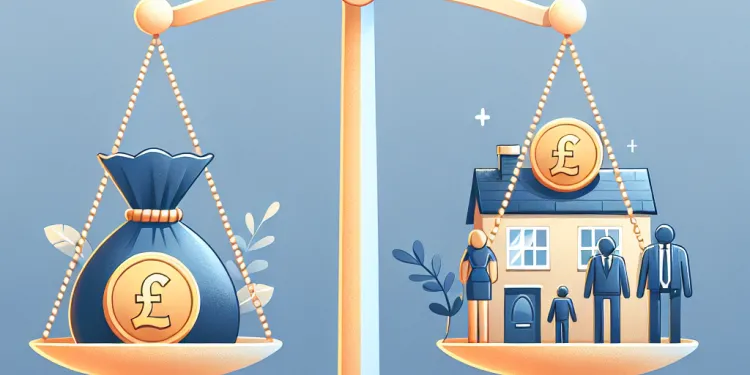
Do unpaid tax debts affect Inheritance Tax calculations?
Relevance: 66%
-

What are the administrative costs of a wealth tax?
Relevance: 65%
-
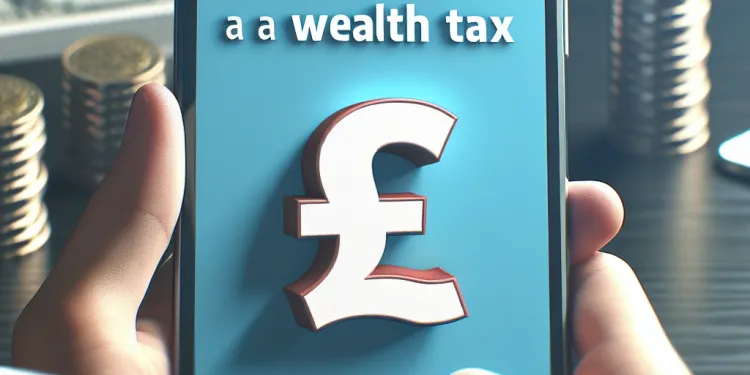
What are the challenges of implementing a wealth tax?
Relevance: 65%
-

How does council tax relate to wealth in the UK?
Relevance: 61%
-

Higher Income Tax - How to Claim Pension Tax Relief | Extra 20% Boost
Relevance: 59%
-

What Happens to Tax Debt After Death? (UK Laws)
Relevance: 55%
-

What is the role of an executor in handling tax debts?
Relevance: 54%
-

Are these grants taxable?
Relevance: 53%
-

Can the executor use the deceased's assets to pay tax debts?
Relevance: 50%
-

What happens to a deceased’s Income Tax if they were employed?
Relevance: 48%
-

What taxes need to be paid from the deceased’s estate?
Relevance: 46%
-

Who is responsible for paying the deceased’s tax debts?
Relevance: 46%
-

What should I do if I need help managing the tax affairs of the deceased?
Relevance: 44%
-

Is it necessary to complete a final tax return for the deceased?
Relevance: 44%
-

Do I need to report the Winter Fuel Payment on my tax return?
Relevance: 38%
-

What taxes in the UK target wealth?
Relevance: 35%
-

What is inheritance tax in the UK?
Relevance: 35%
-

Do I need to pay tax on the £500 cost of living payment?
Relevance: 34%
-

Is the Winter Fuel Payment taxable?
Relevance: 34%
-
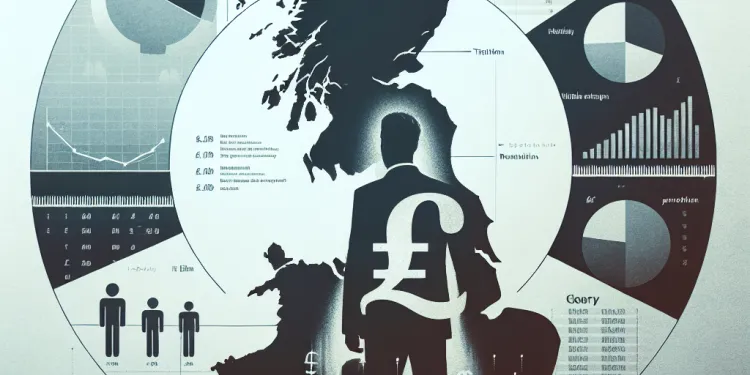
Do public opinion polls support a wealth tax in the UK?
Relevance: 29%
-

What Happens To Investments and Pensions | Moving Abroad | Leaving the UK
Relevance: 25%
-

What if the estate does not have enough assets to pay all tax debts?
Relevance: 25%
-

How do I notify HMRC of someone’s death?
Relevance: 25%
-

How is Inheritance Tax (IHT) dealt with after death?
Relevance: 22%
-

Do I need to inform HMRC about the death?
Relevance: 20%
-

What Is An ISA UK (Should I have an ISA & Different Types Of ISAs)
Relevance: 20%
-

Boost your Take Home Pay | Salary Sacrifice Explained UK
Relevance: 19%
-
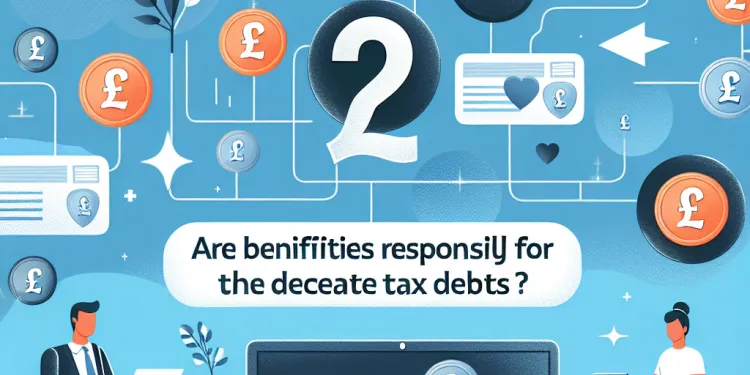
Are beneficiaries responsible for the deceased's tax debts?
Relevance: 18%
Introduction to Wealth Tax
The concept of a wealth tax in the UK refers to a proposed or hypothetical tax system designed to impose taxes on the net wealth of individuals, including assets such as property, investments, and savings. While the UK does not currently have a dedicated wealth tax, the discussion around it has sparked debates among politicians, economists, and the public, particularly in light of economic inequality and fiscal challenges.
Current Taxation on Wealth
Although there is no direct wealth tax in the UK, several taxes impact wealth accumulation and transfer. Key among these are inheritance tax, capital gains tax, and stamp duty. Inheritance tax is levied on estates valued above a certain threshold, while capital gains tax applies to profits from the sale of assets. Stamp duty is payable on property transactions. These taxes collectively serve as a means to tax wealth indirectly, but they do not comprehensively account for an individual's total net worth.
Arguments for Implementing a Wealth Tax
Proponents of a wealth tax argue that it could serve as a tool to reduce economic inequality by redistributing wealth more fairly. It could generate additional government revenue, enabling increased investment in public services such as healthcare and education. Advocates also argue that a wealth tax could deter excessive wealth accumulation by individuals and large corporations, promoting a more balanced economic environment.
Challenges and Criticisms
Critics of a wealth tax highlight potential difficulties in accurately valuing assets, especially those that are not easily liquidated, such as artwork or collectibles. Administrative costs and the risk of capital flight are significant concerns, as wealthy individuals might move their assets or residency to countries with more favorable tax regimes. There is also skepticism about the effectiveness of wealth taxes in achieving their intended outcomes, as seen in countries where similar taxes have been implemented and subsequently repealed.
International Examples
Countries that have experimented with wealth taxes include France, Norway, and Switzerland. France's wealth tax was replaced by a property tax due to issues with enforcement and capital flight. Norway and Switzerland, however, still maintain wealth taxes with varying structures and rates. These examples provide insight into the potential benefits and challenges of implementing such a tax in the UK context.
Conclusion
The debate over the introduction of a wealth tax in the UK continues, balancing the desire to address inequality and generate revenue against practical challenges and potential economic impacts. While it remains a topic of political and economic discourse, any future consideration of a wealth tax will need to carefully examine its structure and the lessons learned from other countries' experiences.
What Is a Wealth Tax?
A wealth tax is an idea in the UK. It would be a system where the government charges money on everything people own. This includes things like houses, investments, and savings. The UK does not have a wealth tax right now, but people talk about it a lot. They say it might help with fairness and the economy.
Taxes on Wealth Right Now
In the UK, there is no direct wealth tax. But, there are other taxes that affect wealth. These include inheritance tax, capital gains tax, and stamp duty. Inheritance tax is charged when someone dies and leaves a lot of money. Capital gains tax happens when you sell something for more than you bought it. Stamp duty is paid when you buy a house. These taxes do not cover all of what a person owns, though.
Why Some People Want a Wealth Tax
Some people think a wealth tax is a good idea. They say it could help make sure everyone is more equal. This tax could bring more money to the government. The government could then use this money for schools and hospitals. Some people also think it would stop some from having too much money and others too little.
Problems with a Wealth Tax
Some people do not like the idea of a wealth tax. They say it is hard to know exactly how much things are worth, like art or rare items. It could cost a lot to manage. Rich people might move their money or leave the country to avoid this tax. Also, in some places, wealth taxes did not work well and were stopped.
What Other Countries Do
Some countries have tried wealth taxes, like France, Norway, and Switzerland. France stopped theirs because it was hard to keep going. Norway and Switzerland still have wealth taxes. They are different in each country. We can learn from these countries about what might happen if we try a wealth tax in the UK.
Final Thoughts
People still talk about whether the UK should have a wealth tax. They want to help people have more equal lives and get more money for the government. But, they also worry about problems it might cause. If the UK thinks about a wealth tax in the future, it will be important to learn from other countries and think it through carefully.
Frequently Asked Questions
What is the wealth tax in the UK?
The UK does not currently have a specific wealth tax. It relies on other taxes like inheritance tax and capital gains tax.
Has the UK ever had a wealth tax?
The UK has explored the idea of a wealth tax but has never implemented a specific ongoing wealth tax.
What taxes in the UK target wealth?
In the UK, taxes such as inheritance tax, capital gains tax, and property tax are used to target wealth.
Why doesn't the UK have a wealth tax?
A wealth tax has been considered but is often seen as challenging to implement and enforce effectively.
What is inheritance tax in the UK?
Inheritance tax is a tax on the estate (the property, money, and possessions) of someone who's died. The standard rate is 40%.
Is there a proposal for a wealth tax in the UK?
There have been various proposals and discussions about a wealth tax, especially following economic crises, but no plans have been set.
What is capital gains tax in the UK?
Capital gains tax is charged on the profit when you sell or dispose of an asset that has increased in value.
Would a wealth tax replace other taxes in the UK?
If implemented, a wealth tax could complement existing taxes but wouldn't necessarily replace them.
How does council tax relate to wealth in the UK?
Council tax is charged on properties and can indirectly affect wealthier individuals with higher property values.
What arguments are made for a wealth tax in the UK?
Arguments for a wealth tax include reducing inequality and increasing revenue from the wealthiest individuals.
How do other countries implement a wealth tax?
Some countries, like Norway and Spain, have implemented an annual wealth tax on individual net worth over a certain threshold.
What are the challenges of implementing a wealth tax?
Challenges include valuation of assets, potential capital flight, and administrative complexity.
What assets would a UK wealth tax likely target?
A wealth tax might target tangible assets like property and intangible assets like stocks and shares.
Could a wealth tax affect economic growth in the UK?
Critics argue it could deter investment and entrepreneurship, while supporters believe it could fund growth-enhancing policies.
How might a wealth tax impact inequality in the UK?
By directly taxing wealth, it could potentially reduce income and wealth inequality.
What are the administrative costs of a wealth tax?
Implementing and maintaining a wealth tax could incur significant administrative costs, particularly in asset valuation.
Do public opinion polls support a wealth tax in the UK?
Polls have shown varying levels of support, often higher among those who believe it would affect only the wealthy.
Would a wealth tax apply to foreign assets?
If implemented, it could include worldwide assets of UK residents but might exempt non-resident assets.
Could a wealth tax encourage tax avoidance?
There is potential for increased tax avoidance if individuals seek ways to move or conceal their wealth.
Has any political party in the UK supported a wealth tax?
Some political parties and groups on the left have shown support for the concept, but it remains a contentious issue.
What is the wealth tax in the UK?
A wealth tax is money that rich people pay to the government because of the things they own.
This could include:
- Money
- Houses
- Land
Helpful tips:
- Use a calculator to work out tax amounts.
- Make a list of things you own to keep track.
- Ask someone you trust for help if you find it hard to understand.
The UK does not have a special wealth tax right now. Instead, it uses other taxes like inheritance tax and capital gains tax.
Did the UK ever have a wealth tax?
A wealth tax is when people pay money to the government because they own a lot of things like houses, cars, or money. The UK has not had a special wealth tax.
If you want to learn more or need help, you can ask someone to explain it, use pictures, or talk to a teacher or helper.
The UK has thought about having a wealth tax, but they have never used it.
What are the UK taxes on wealth?
In the UK, there are some taxes you pay if you have a lot of money or stuff. Here are the main ones:
- Inheritance Tax: This is money you pay when someone dies and leaves you their money or things.
- Capital Gains Tax: You pay this when you sell something valuable, like a house or shares, for more than you paid for it.
- Property Tax: You pay this every year if you own a house or land.
If reading is hard, try using a ruler or your finger to help you keep your place. You can also ask someone to read it with you or use an app to read it out loud.
In the UK, the government gets money from taxes like inheritance tax, capital gains tax, and property tax. These taxes are used to get money from people who have a lot of wealth, like houses, money, or things they own.
Tools like text-to-speech apps can help read this for you. You can also ask someone to explain it to you if it's hard. Taking it slow and using a highlighter can make it easier to understand.
Why Doesn't the UK Have a Wealth Tax?
A wealth tax is money people pay to the government if they own a lot of money or things. Lots of countries talk about having a wealth tax.
The UK does not have a wealth tax right now. Some people say it would help to get money for things like schools and hospitals. But, other people think it might not work well.
If you want to know more, you can ask someone who knows about money, like a teacher or a parent.
People have thought about making a special tax for rich people. This is called a "wealth tax." But it can be hard to make it work and to check if everyone is paying the right amount.
What is inheritance tax in the UK?
Inheritance tax in the UK is a tax you might have to pay when someone dies and they leave you money or things like a house.
You pay this tax to the government.
If the person who died gave you money or things worth more than a certain amount, you might have to pay this tax.
To understand this better, you can ask someone you trust to help you, like a family member or a friend.
There are also online calculators that can help you see if you need to pay this tax.
Inheritance tax is money you pay on the things a person leaves behind when they die. This can be houses, money, or belongings. Usually, the tax is 40% of what they leave.
Is there a new plan for a wealth tax in the UK?
A wealth tax means rich people pay money on what they own. This might happen in the UK. The government is thinking about it.
If you find reading hard, try using a picture dictionary or ask someone to read with you.
People have talked about making a special tax for people with lots of money. This happens a lot after big money problems in the country. But right now, there are no actual plans to start this tax.
What is Capital Gains Tax in the UK?
Capital Gains Tax is a tax you pay on the money you make when you sell something for more than you paid for it. This could be a house, shares, or something else that increased in value.
If you sell something and make a profit, you might have to pay this tax. There are rules about how much money you can keep before you need to pay tax on it.
If you need help understanding how much tax you might need to pay, you can ask an adult or use online calculators to help you. You can also use big print or colored paper to make reading easier.
You pay a special tax when you sell something valuable for more money than you bought it for.
Could a wealth tax take the place of other taxes in the UK?
A wealth tax is when rich people pay money based on how much they own. It could be used instead of other taxes.
Here are some ways to make it easier to understand:
- Break the question into smaller parts.
- Use simple words.
- Ask someone to help you read it.
- Look for pictures or videos that explain it.
A wealth tax is a way for people with a lot of money to help pay for things we all need. It would work with the taxes we have now. It wouldn't stop other taxes we already pay.
What is council tax and how is it linked to how much money people have in the UK?
Council tax is money people pay to help run local services. The amount you pay can be linked to the value of your home.
People with big, expensive homes might pay more. People with smaller, cheaper homes might pay less.
If you want help understanding council tax, you can ask someone you trust to explain it. You can also use online tools that make reading easier.
Council tax is a payment you make for your home. People with bigger and more expensive homes might have to pay more money.
Why do some people want a wealth tax in the UK?
Some people think rich people should pay more tax. This tax is called a "wealth tax."
They say it will help share money more fairly. It can also help pay for schools, hospitals, and other things everyone needs.
People also believe a wealth tax can help make things fairer between rich and poor people.
Tools that might help you understand this:
- Audio books or podcasts about taxes.
- Videos explaining what taxes are and why they are important.
A wealth tax helps make things fair by asking rich people to pay more. This can help bring in more money for everyone.
How do other countries create a wealth tax?
Some countries, like Norway and Spain, have a special rule. This rule is that people who have a lot of money have to pay a tax every year. This tax is only for people who have more than a certain amount of money.
What makes it hard to start a wealth tax?
A wealth tax is a money rule. Rich people pay money on what they own.
Making a wealth tax can be tricky. Here are some problems:
- It is hard to know how much someone owns. People might hide things.
- Rich people might move to places without a wealth tax.
- Setting up the tax system can cost a lot of money.
- People might not agree on how the tax money is used.
Tools to help:
- Look at pictures or diagrams to understand.
- Ask someone to explain it with simple words.
- Use apps that make reading easier.
There are some problems we need to look at:
- It is hard to figure out how much things are worth.
- People might quickly move money to other places.
- It can be tricky to manage everything.
If you find this difficult, you can try these tips:
- Use a dictionary to understand hard words.
- Ask someone to explain the parts you don't get.
- Break down the information into smaller pieces.
What things might the UK tax if there was a wealth tax?
A wealth tax is a way for the government to collect money. It can be taken from things you own, like houses or land, and from things you can't see, like stocks and shares. Stocks and shares are pieces of a company you can buy.
Will a tax on rich people's money change the UK's economy?
Some people think it might stop people from putting money into businesses and trying new ideas. But others think it could help pay for things that make the country grow.
How could a wealth tax change money differences in the UK?
Some people in the UK have lots of money and things. Others have less. This difference is called inequality.
A wealth tax means people with lots of money and things would pay extra money to the government. This extra money could help others who have less.
With a wealth tax, some people believe money differences could get smaller. Others think it might not help much.
If you want to learn more or need help, you can ask a teacher or someone you trust. You can also use tools like audiobooks or videos to understand better.
If we make rich people pay more taxes, it might help make money and wealth more equal for everyone.
What are the costs to manage a wealth tax?
Having a wealth tax might cost a lot of money to manage. This is because it's hard to decide how much things are worth.
Do People in the UK Want a Wealth Tax?
Let's find out if most people in the UK want a wealth tax. A wealth tax is when rich people pay more money to the government. We can use surveys, which ask people what they think, to see if they want this tax.
If you want help to understand this, you can:
- Ask someone to read it with you.
- Use a dictionary to learn new words.
- Try using text-to-speech tools that can read the text out loud.
Surveys show different levels of support. More people support it if they think it will only affect rich people.
Does a wealth tax include things you own in other countries?
If this happens, it might include everything UK people own all around the world. But it might not include things owned by people who don't live in the UK.
Will a wealth tax make people try to avoid paying tax?
Some people might try to hide their money to pay less tax.
Do any UK political parties want a wealth tax?
A wealth tax is when rich people pay more money to the government. In the UK, some political parties have talked about this idea.
If you want to know which parties support a wealth tax, you can look at their websites or read the news.
If you need help understanding the news, you might use a news app that reads out loud or ask someone you trust to explain. Pictures and videos can also help you understand more.
Some people and groups who like left-wing politics think this idea is good. But many others do not agree. It is a topic that people argue about a lot.
Useful Links
More Videos of Interestdiagnosis
- Ergsy carfully checks the information in the videos we provide here.
- Videos shown by Youtube after a video has completed, have NOT been reviewed by ERGSY.
- To view, click the arrow in centre of video.
- Most of the videos you find here will have subtitles and/or closed captions available.
- You may need to turn these on, and choose your preferred language.
- Go to the video you'd like to watch.
- If closed captions (CC) are available, settings will be visible on the bottom right of the video player.
- To turn on Captions, click settings .
- To turn off Captions, click settings again.
More Items From Ergsy search
-

Would a wealth tax replace other taxes in the UK?
Relevance: 100%
-

What is the wealth tax in the UK?
Relevance: 92%
-

Could a wealth tax encourage tax avoidance?
Relevance: 92%
-

What is the Wealth Tax in the UK?
Relevance: 87%
-

How do other countries implement a wealth tax?
Relevance: 80%
-

How might a wealth tax impact inequality in the UK?
Relevance: 79%
-

Has the UK ever had a wealth tax?
Relevance: 79%
-

Could a wealth tax affect economic growth in the UK?
Relevance: 79%
-

Has any political party in the UK supported a wealth tax?
Relevance: 79%
-

Why doesn't the UK have a wealth tax?
Relevance: 78%
-

Would a wealth tax apply to foreign assets?
Relevance: 72%
-

What arguments are made for a wealth tax in the UK?
Relevance: 70%
-

Do unpaid tax debts affect Inheritance Tax calculations?
Relevance: 66%
-

What are the administrative costs of a wealth tax?
Relevance: 65%
-

What are the challenges of implementing a wealth tax?
Relevance: 65%
-

How does council tax relate to wealth in the UK?
Relevance: 61%
-

Higher Income Tax - How to Claim Pension Tax Relief | Extra 20% Boost
Relevance: 59%
-

What Happens to Tax Debt After Death? (UK Laws)
Relevance: 55%
-

What is the role of an executor in handling tax debts?
Relevance: 54%
-

Are these grants taxable?
Relevance: 53%
-

Can the executor use the deceased's assets to pay tax debts?
Relevance: 50%
-

What happens to a deceased’s Income Tax if they were employed?
Relevance: 48%
-

What taxes need to be paid from the deceased’s estate?
Relevance: 46%
-

Who is responsible for paying the deceased’s tax debts?
Relevance: 46%
-

What should I do if I need help managing the tax affairs of the deceased?
Relevance: 44%
-

Is it necessary to complete a final tax return for the deceased?
Relevance: 44%
-

Do I need to report the Winter Fuel Payment on my tax return?
Relevance: 38%
-

What taxes in the UK target wealth?
Relevance: 35%
-

What is inheritance tax in the UK?
Relevance: 35%
-

Do I need to pay tax on the £500 cost of living payment?
Relevance: 34%
-

Is the Winter Fuel Payment taxable?
Relevance: 34%
-

Do public opinion polls support a wealth tax in the UK?
Relevance: 29%
-

What Happens To Investments and Pensions | Moving Abroad | Leaving the UK
Relevance: 25%
-

What if the estate does not have enough assets to pay all tax debts?
Relevance: 25%
-

How do I notify HMRC of someone’s death?
Relevance: 25%
-

How is Inheritance Tax (IHT) dealt with after death?
Relevance: 22%
-

Do I need to inform HMRC about the death?
Relevance: 20%
-

What Is An ISA UK (Should I have an ISA & Different Types Of ISAs)
Relevance: 20%
-

Boost your Take Home Pay | Salary Sacrifice Explained UK
Relevance: 19%
-

Are beneficiaries responsible for the deceased's tax debts?
Relevance: 18%







































